
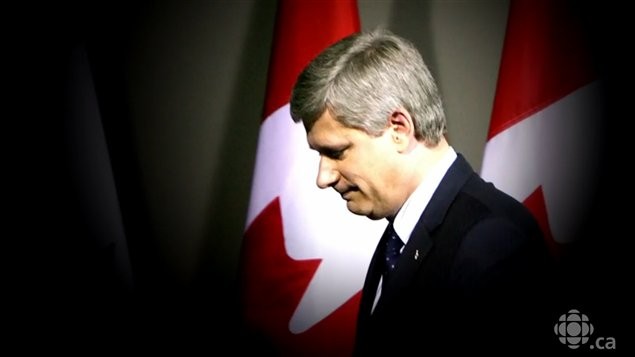
Canada’s Prime Minister, Stephen Harper, has been in power since the beginning of 2006. He obtained a majority government in 2011, and he intends to run again in the 2015 election.
At this mid-point in his mandate, and in the wake of his recent throne speech, where he hoped to breathe new life into his government, we thought it was a good time to review these Harper years.
Has he profoundly changed Canada? Where and how has he left his mark?
To produce these six reports on these questions, we went from one end of Canada to the other, and on to Peru and then the Arctic. We interviewed experts and analysts, and regular Canadians.
You will see we did not interview any politicians, in order to avoid endless and ongoing debates. But you will hear from the First Nations of British Columbia, the unemployed, workers from one of Canada’s east coast Maritime provinces, and a fruit and vegetable shopkeeper in Toronto. They all had their say on Stephen Harper’s Canada.
THE CANADIAN IDENTITY
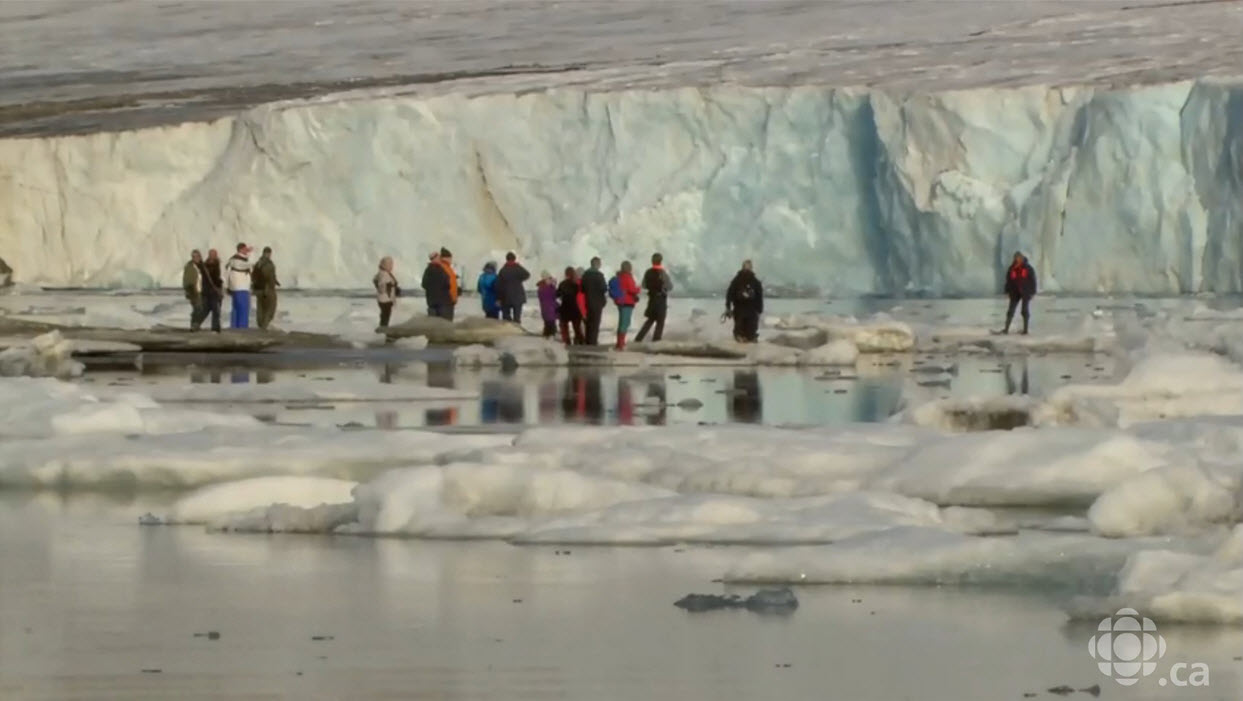
On February 22nd 2013, there is a commemoration of the War of 1812 at Prescott, in south-eastern Ontario. Anglo-Canadian troops cross the St. Lawrence River near Ogdensburg to teach the American troops a lesson. They’ve been raiding and pillaging the villages in this region of Upper Canada.
Among the Canadians, is historian Stephane Poirier, a military historian. He believes the War of 1812 was the event that created our Canadian identity.
Prime Minister Stephen Harper sees the War of 1812 as a founding moment of the Canadian Identity. He invested about 30 million dollars in a campaign to familiarize Canadians today with this conflict. There have been several re-enactments across the country, a series of television ads, images engraved on our money and key players commemorated on our postage stamps.
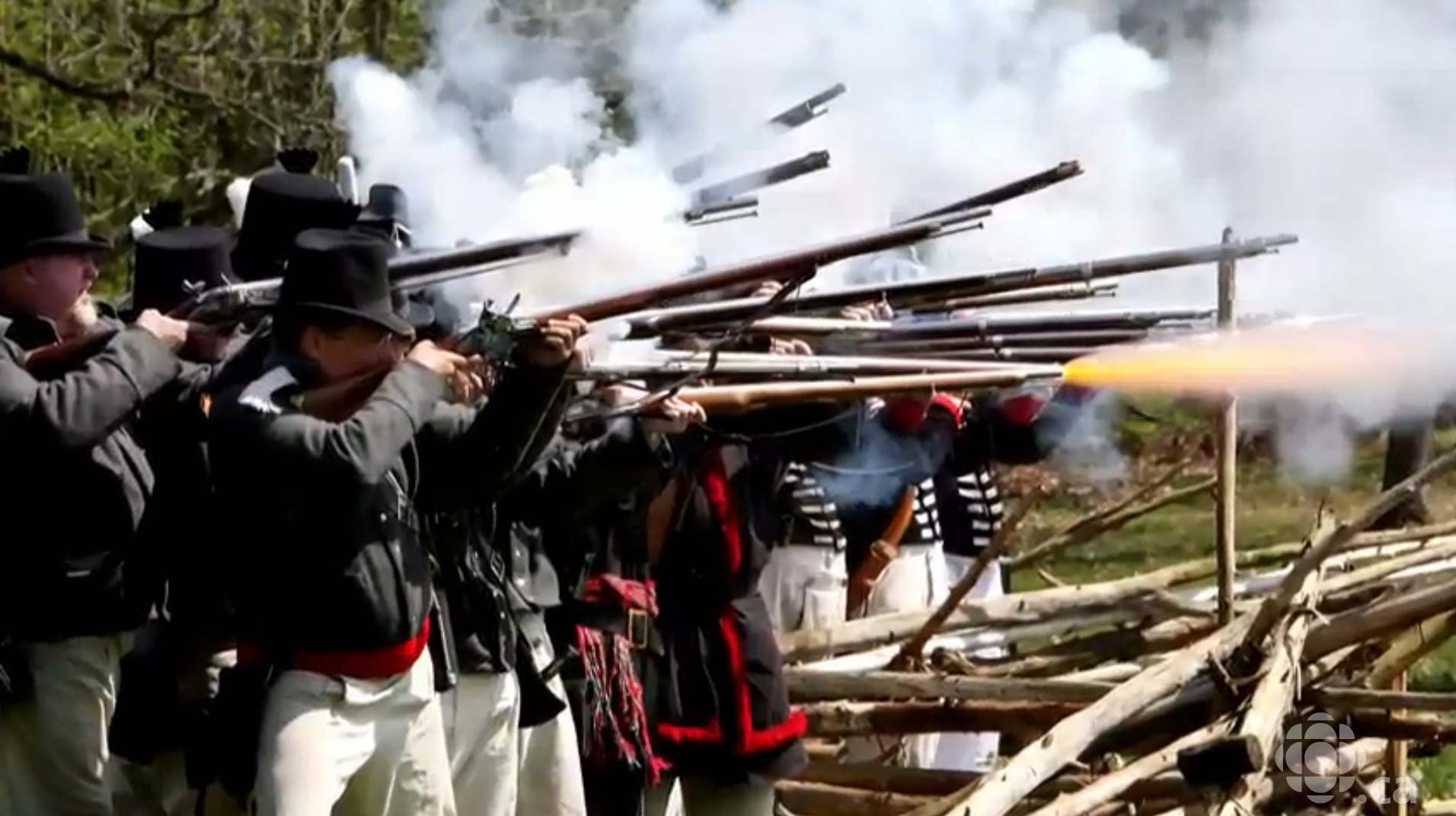
Survey after survey has demonstrated that very few Canadians know about the War of 1812, so why spend millions of dollars commemorating the 200th anniversary?
Gerry Nichols rubbed shoulders with Stephen Harper during the five years he was president of the National Citizens Coalition, a group devoted to Conservative causes. According to Gerry Nichols, Mr. Harper detested the old Liberal regimes of Prime Ministers Lester Pearson and Pierre Trudeau whom he felt, neglected Canada’s history and military traditions.

Political Scientist, Denis Saint-Martin, of L’Universite de Montreal, believes this reveals a particular aspect of Stephen Harper’s personality.
Prime Minister Harper created more occasions to honour the Canadian military and commemorate its greatest battles.
Under Stephen Harper, the Canadian Navy and air force have once again, become “royal” because the conservative government believes that Canada is deeply attached to the British monarchy. In his first address to the House of Commons as Prime Minister he emphasized his support for Queen Elisabeth II.
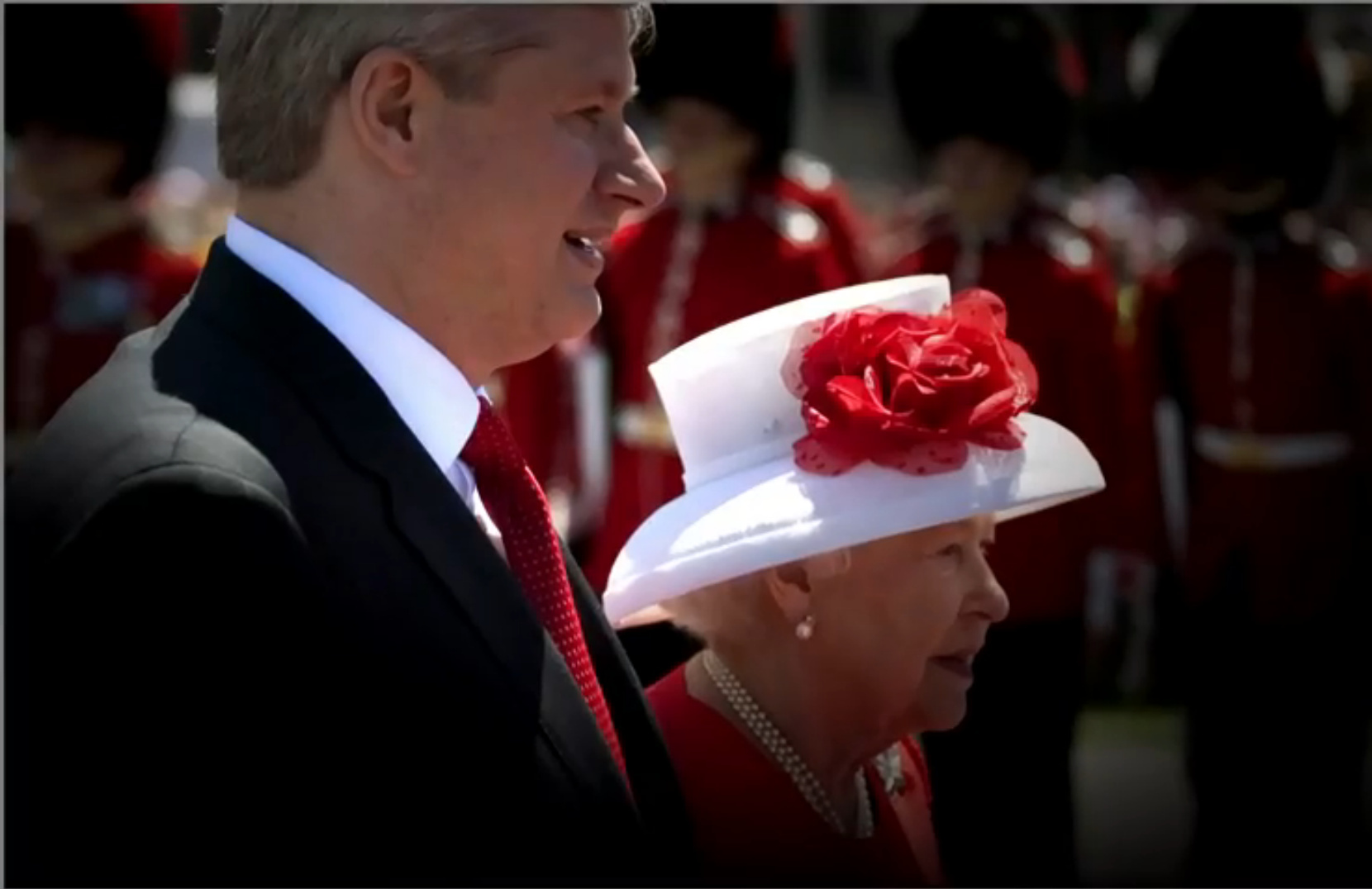
Robert Finch is president of the Monarchist League of Canada. On this occasion he is assisting at a ceremony in Toronto. Prince Philip has come over to present the new colours to the 3rd Battalion of the Royal Canadian Regiment, of which the prince is Colonel-in-chef. Robert Finch rejoices in the status of the Monarchy under the Harper government.
Political Science professor Tom Flanagan is a member of the group known as “the Calgary School”, a group of Conservative professors from the University of Calgary who have been very close to Stephen Harper for many years. For him, this emphasis on the monarchy pleases the electorate of Stephen Harper in the western provinces where the power base has shifted.
In 2006, after just months in power, Stephen Harper highlighted Canadian sovereignty over 40 per cent of the Arctic, and described it as essential to Canada’s national identity as a northern country.
He proclaims Canada’s sovereignty on the sea, in the air and on land, where the Rangers, reservists and the majority of Inuit will be the eyes and ears of the Canadian forces.
Stephen Harper returns each year to the North as a reminder of the necessity of protecting this symbolic territory of the Canadian identity. For professor Stephane Roussel, a specialist in international relations, it is difficult to imagine a threat to Canada’s sovereignty in this region.
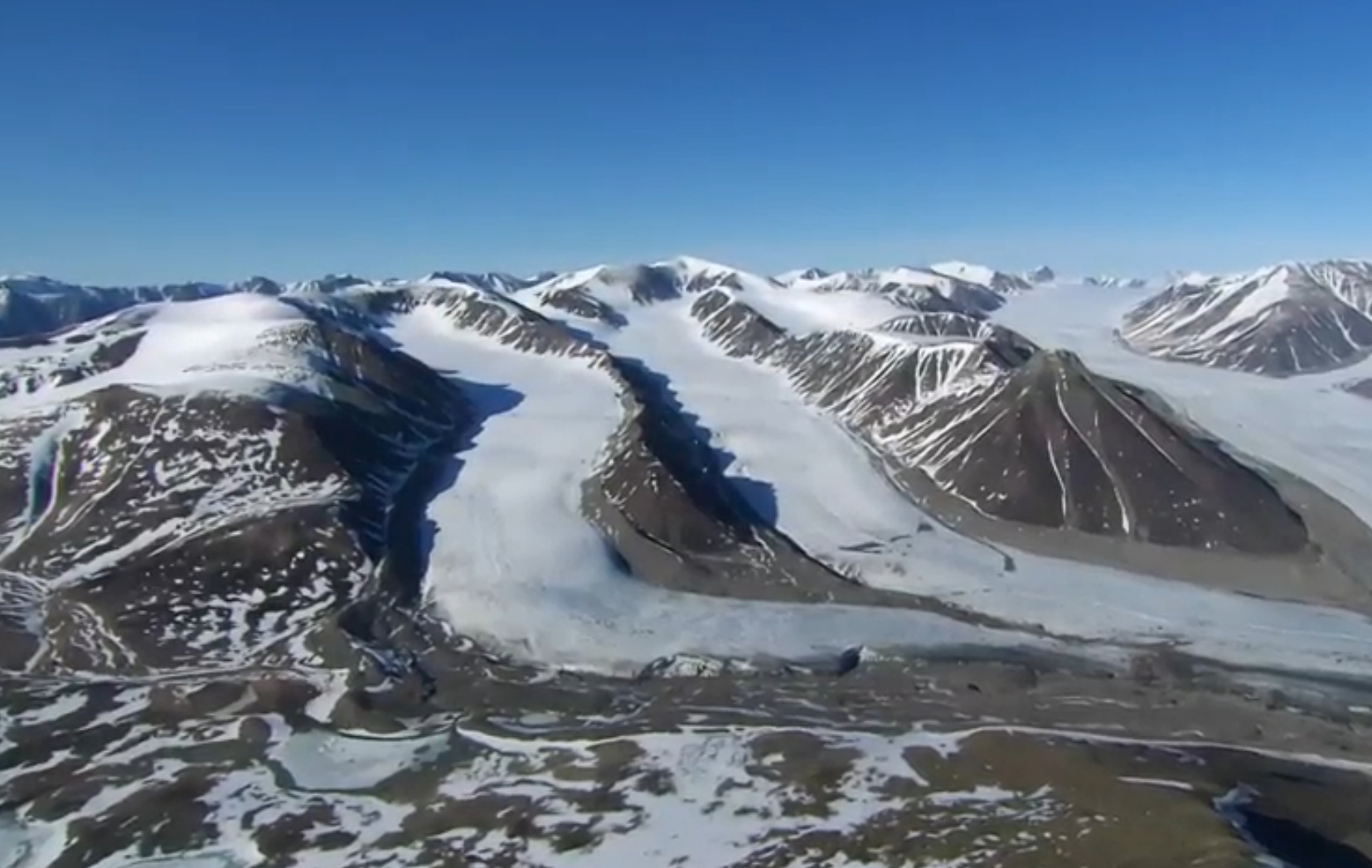
So these are the pillars of Canadian identity, as seen by Prime Minister Stephen Harper; a north to protect and develop, a monarchy that makes us different from the United States, an army that assures we are ready for combat, and a war, 200 years ago, that could be described as a pivotal moment in Canadian history, that forged the base of this Canadian identity, in the union of the French, English, First Nations and British fighters, against the neighbouring American invaders.
REFORM OF EMPLOYMENT
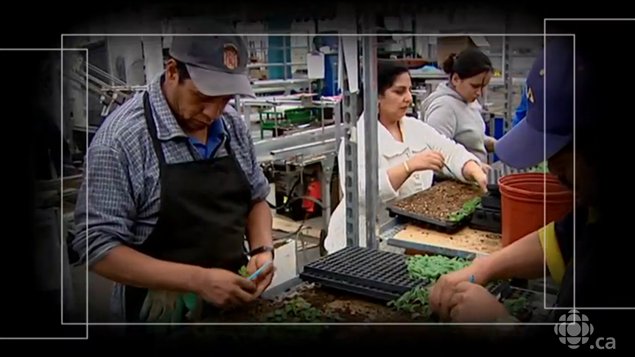
We’re in Calgary, Alberta, at the James Joyce Pub, in the heart of downtown, and it’s packed!
Gerard Curran, owner of the James Joyce pub, had another restaurant he had to close, because of a lack of manpower: 12 of the 50 workers here, are temporary foreign workers. The wait staff and the barman are Irish, the hostess and the people working in the kitchen are from the Philippines; that’s it, that’s the challenge for the owner of this pub, he can’t find Canadian workers.
Over the years, the Harper government has responded to the demands of these businesses and it was easy to hire temporary foreign workers. They are now employed by 33,000 companies, and no longer just in the agricultural sector but in all sectors. In the seafood factories, in the social services, and even in construction where there was a demand for Latin American workers to build the rapid transit line in Vancouver.
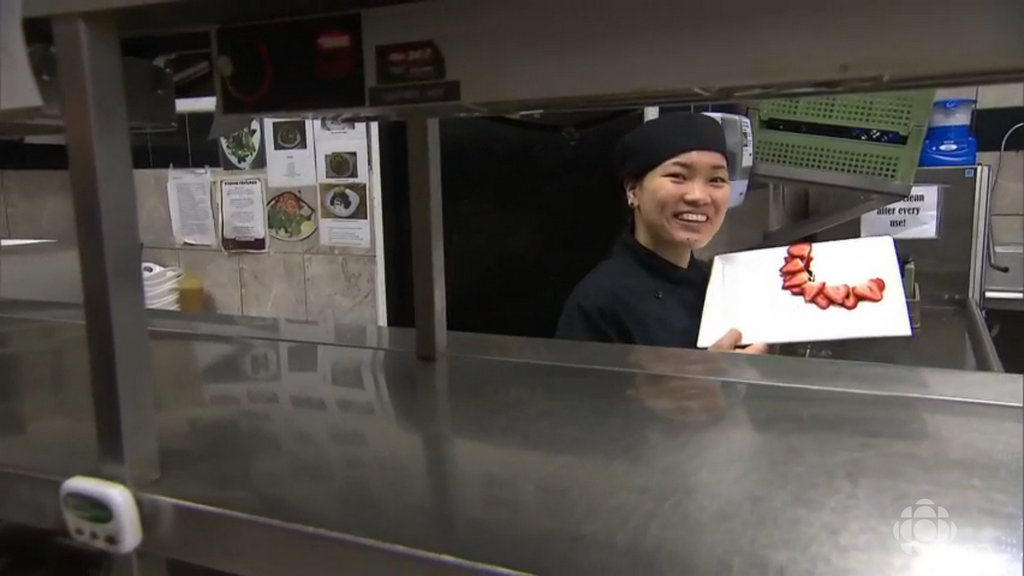
The number of temporary foreign workers has tripled in 10 years. At the end of 2012 there were 340,000 of these workers in Canada. But many cases of abuse of the Temporary Foreign Worker program have made news headlines.
The mine in British Columbia, purchased by the Chinese for example, had started to train some of the 201 workers they wanted to bring from China to teach them English, which angered several Canadian unions .
After numerous denunciations in the media, Stephen Harper announced that he would tighten conditions for access to the Temporary Foreign Worker program. For Tom Flanagan, political science professor at the University of Calgary and former advisor to Mr. Harper, this was merely a strategic retreat.

In the spring of 2013, Mr. Harper announced a reform of employment insurance that appeared to meet the demands of these employers.
The reforms targeted frequent claimants and seasonal workers, particularly in the fisheries and forestry industries. Workers are now expected to accept a job up to an hour away from home, even when it pays less. These reforms have not gone over well in the province of Quebec and the Maritime provinces. Melanie Brideau, a 35 year-old Acadian from New Brunswick, mother of 3 children, has participated in several protests.
Maurice Martin went one step further. The fisherman from Aldouane, New Brunswick, began a hunger strike to protest the reforms to Employment Insurance. He held out for 28 days. He wrote a letter to Prime Minister Harper. No one from the government responded. In Toronto, Matthew Mendelsohn runs the Mowat Centre, a public policy think-tank. According to him, Employment Insurance was diverted from its original purpose, serving as extra income for seasonal workers, while other workers don’t have access.
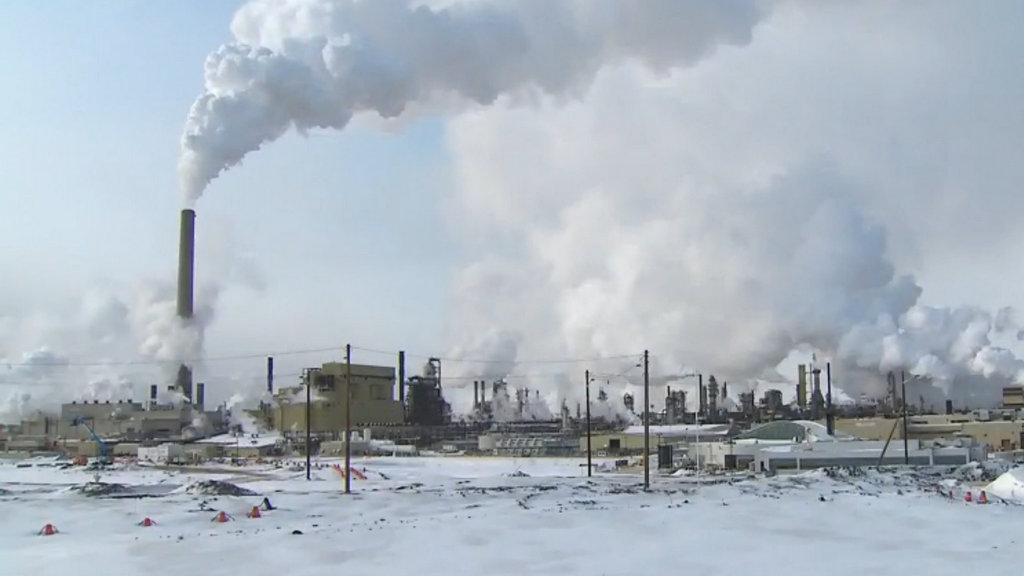
Tom Flanagan remembers Stephen Harper’s declaration in 2002, when he was leader of the Canadian Alliance. He told the New Brunswick Telegraph newspaper that there is a “dependency in the Atlantic provinces that has created a culture of defeat.”
Guy Lanteigne made the move and went west to work in the oil sands, because jobs are scarce at home. He commuted between Fort McMurray in Alberta, and Saint Sauver in New Brunswick, where his family lives. But it’s the oil industry that’s providing a living so far from home these days. And the situation is not about to change soon. In fact, Guy Lanteigne is doing exactly what the Harper government expects Canadians to do.
Move to where the jobs are, and today’s jobs are in the west!
LAW AND ORDER
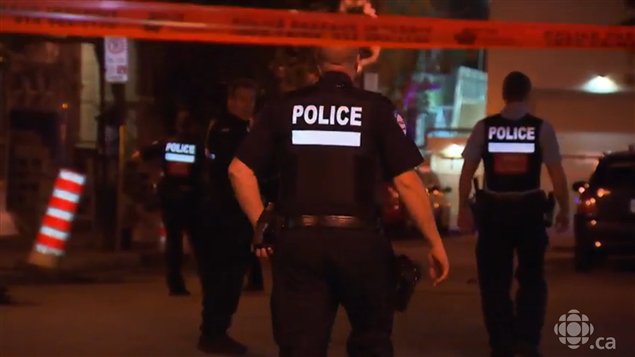
We’re in Toronto at the Lucky Moose Market, a fruit and vegetable store in the heart of Toronto’s Chinatown. David Chen, the owner of this store, has worked without stop for 10 years to make a success of this business. One sad day in 2009 Chen saw the man who stole flowers from his shop,an hour earlier. Chen caught the suspect with two of his employees. They bound him and kept him inside a van until police arrived. Chen, who thought he had done well, was shocked when the police took him!
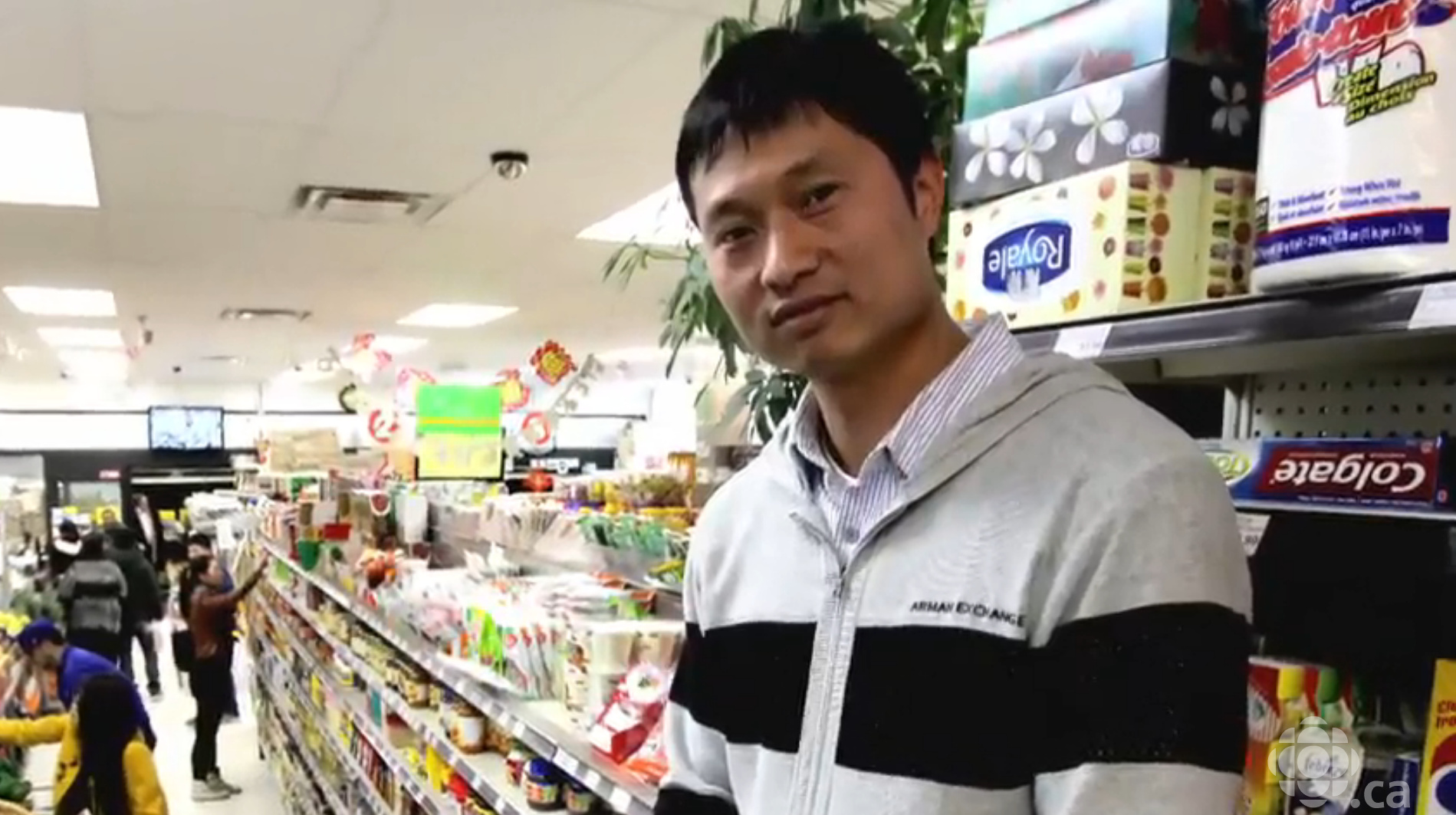
David Chen was released but had to appear in court to face charges of assault and kidnapping: he stopped the suspect one hour AFTER the theft. The law allows a merchant to stop a thief only if caught in the act.
Peter Lindsay defended David Chen in court. Chen was hailed as a hero in the community.17 months later he was acquitted. 4 months after Stephen Harper proposed amendments to the Criminal Code
to re-define the laws regarding self-defence and citizen’s arrest. Stephen Harper was keen to visit the Lucky Moose Market. David Chen, a hero in his neighborhood received a Queen Elisabeth Jubilee Medal from Stephen Harper.
For commentator Gerry Nicholls, who’s known Mr. Harper since his early days in politics, this approach to law and order is not a problem for the Prime Minister. Joelle Roy is president of the Quebec Association of Defense Lawyers . For her, the new laws and tougher measures introduced by Stephen Harper don’t reflect the DECREASE in crime in Canada.Tougher laws against young offenders, use of mandatory minimum sentences and tougher penalties, all lead to an increase in the prison population. Jean-Claude Hebert is a lawyer and professor of legal studies. He finds Mr. Harper faithful, only to his ideology .
Isabelle Gaston campaigned for Mr. Harper’s stricter laws on people declared “Not Criminally Responsible”.
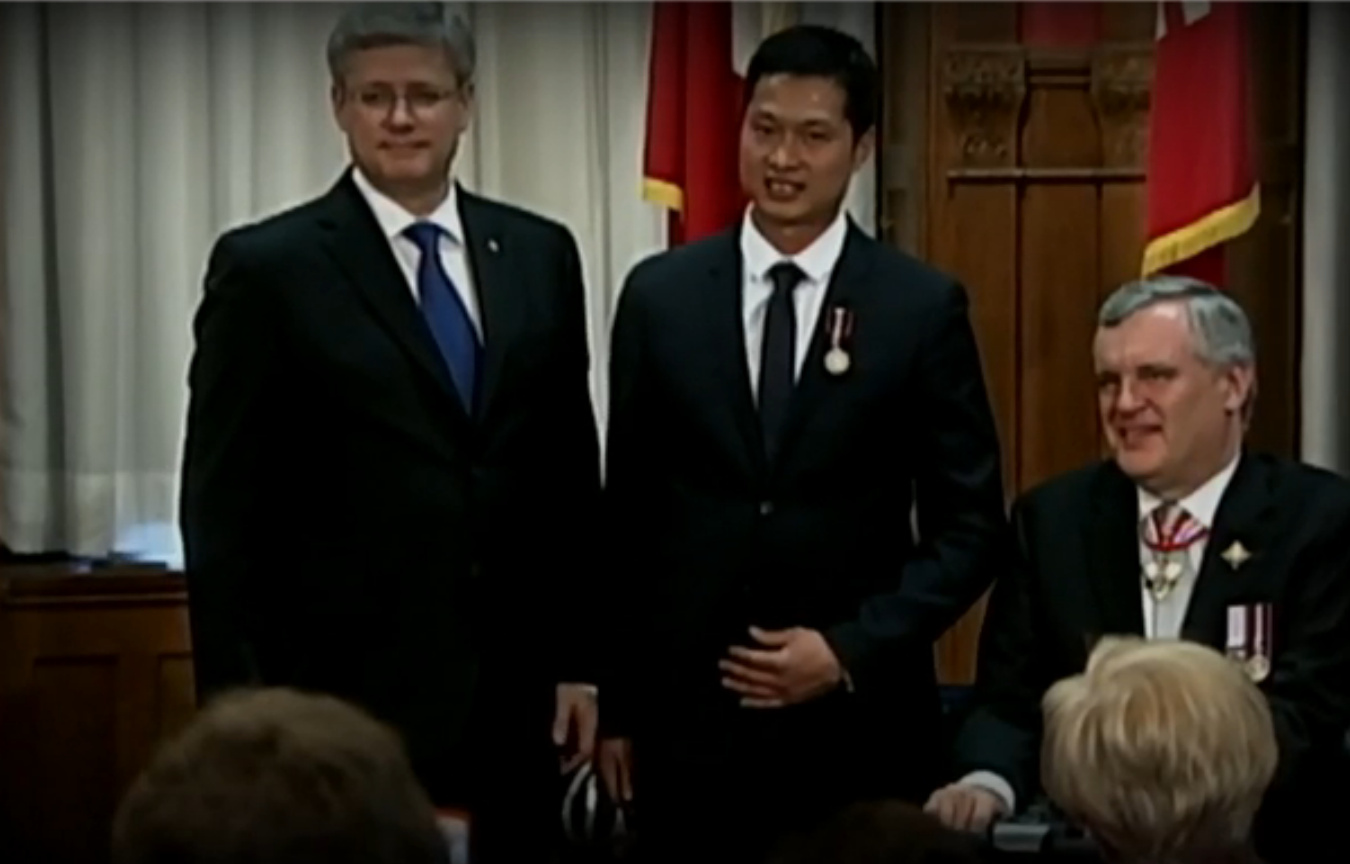
Her ex-husband Guy Turcotte, was found not criminally responsible after killing their two children.
David Chen feels safer now, and not just because of Mr. Harper’s tougher stand on crime, but after being the victim of theft on several occasions, Chen has installed dozens of cameras around his business, similar to a penitentiary!
ECONOMIC OR ENVIRONMENTAL DEVELOPMENT
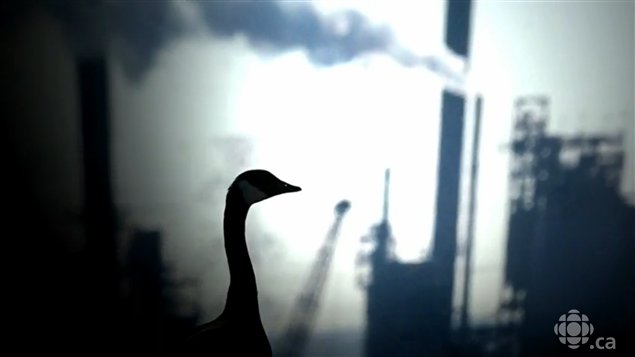
We’re in the Kenora area of north-western Ontario, close to the Manitoba border. This is where you’ll find what’s known as… the Experimental Lakes Area… A vast outdoor laboratory of 58 lakes.
Since 1968 this has been a test-site for the effects of various pollutants… on these fresh water reservoirs. This is where, after years of debate, we demonstrated, scientifically, the harmful effects of acid rain.Margaret Xenopoulos, is a scientist who conducts experiments on water quality here. In May 2012, she was stunned… when Fisheries and Oceans Canada announced the closure of this research center.
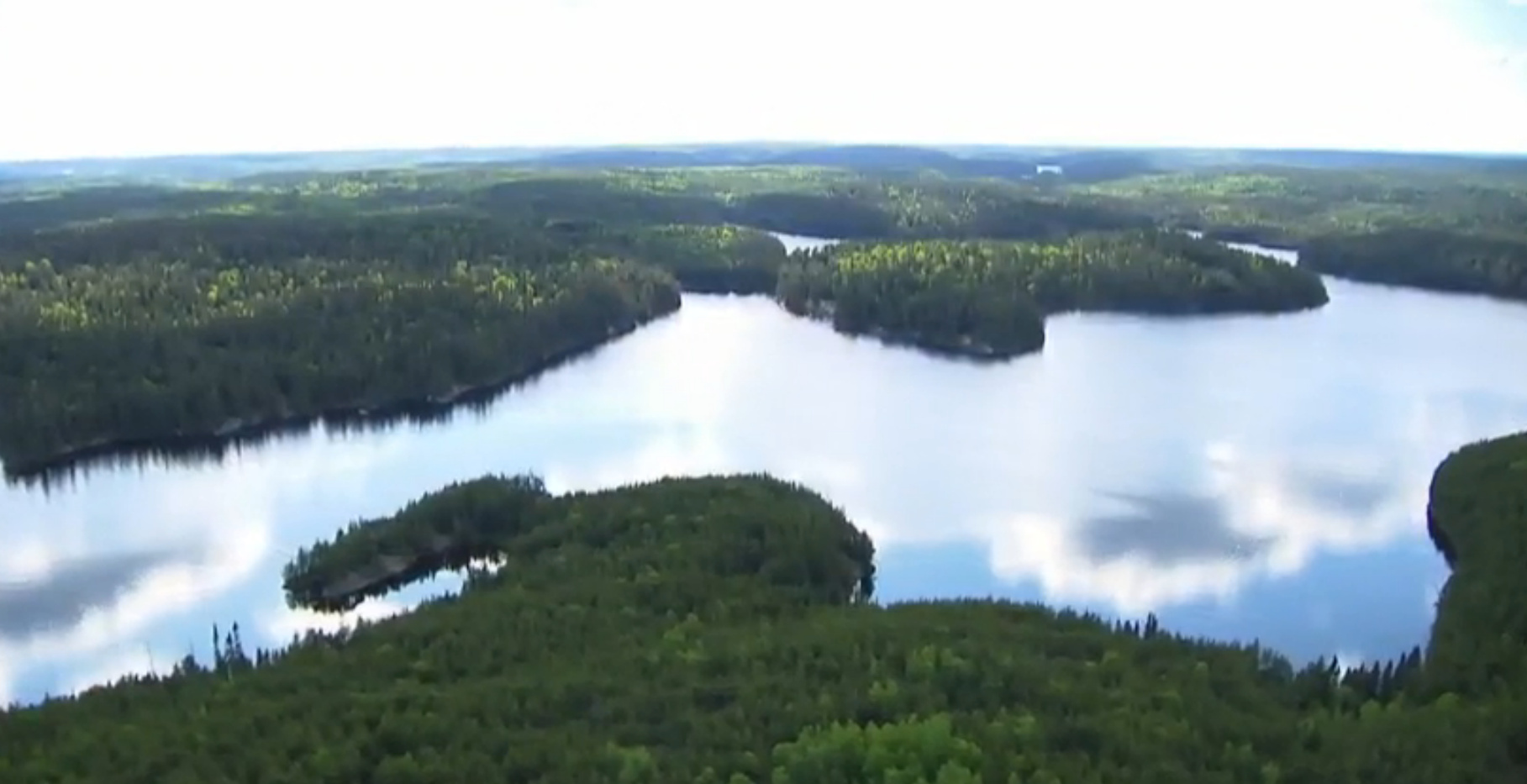
The announcement of the closure was… for many scientists, the straw that broke the camel’s back… Thousands of protests had taken place many times against Stephen Harper’s policies. These included measures such as budget cuts and gagging scientists whose projects are funded by the federal government… Here in Ottawa, science was symbolically placed in a coffin! Scientists are not the only ones complaining… in fact, according to several people who know him well, Mr. Harper is making every effort to control all aspects of the government’s message.
Jackie Thomas is a former chief of British Columbia’s… Saik’uz First Nation’s tribe. She also accuses Mr Harper of wanting to silence those, who, like her, are opposed to some of the government’s policies….And… she doesn’t miss an opportunity to talk about sustainable development in the way… she wants
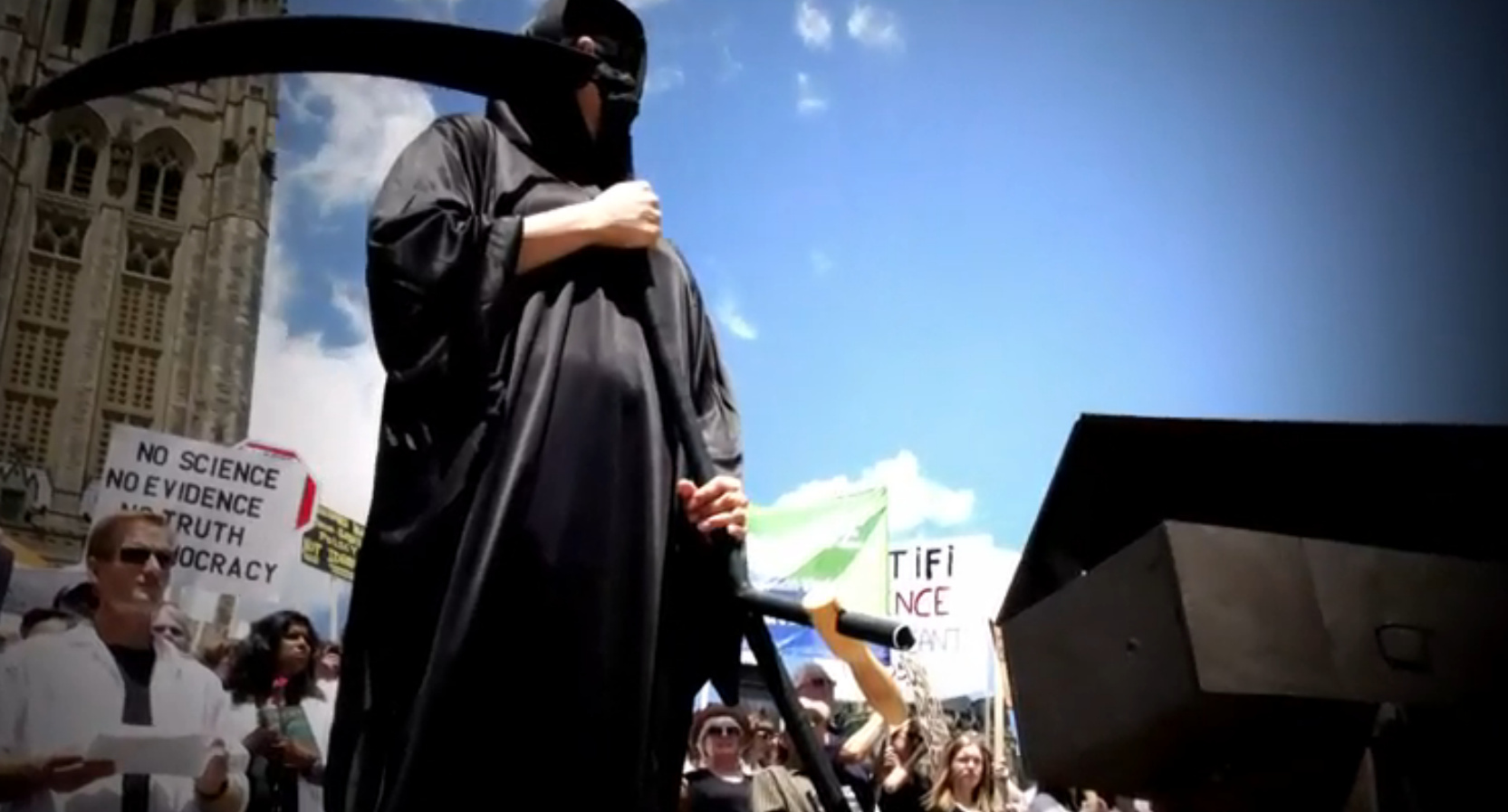
In February 2013, she spoke to a crowd of 20,000 demonstrators who came to the United States’ capital… denouncing the Keystone XL pipeline … Jackie Thomas comes from an isolated area of the province,
a small reserve of a hundred people … She takes care of Aboriginal youth who are often idle, who have lost confidence in themselves …Her tribe, like many others in British Columbia, opposes another pipeline, the Northern Gateway would ship oil sands bitumen to the Pacific coast…these First Nation’s say they want to preserve their culture and living environment for generations to come …
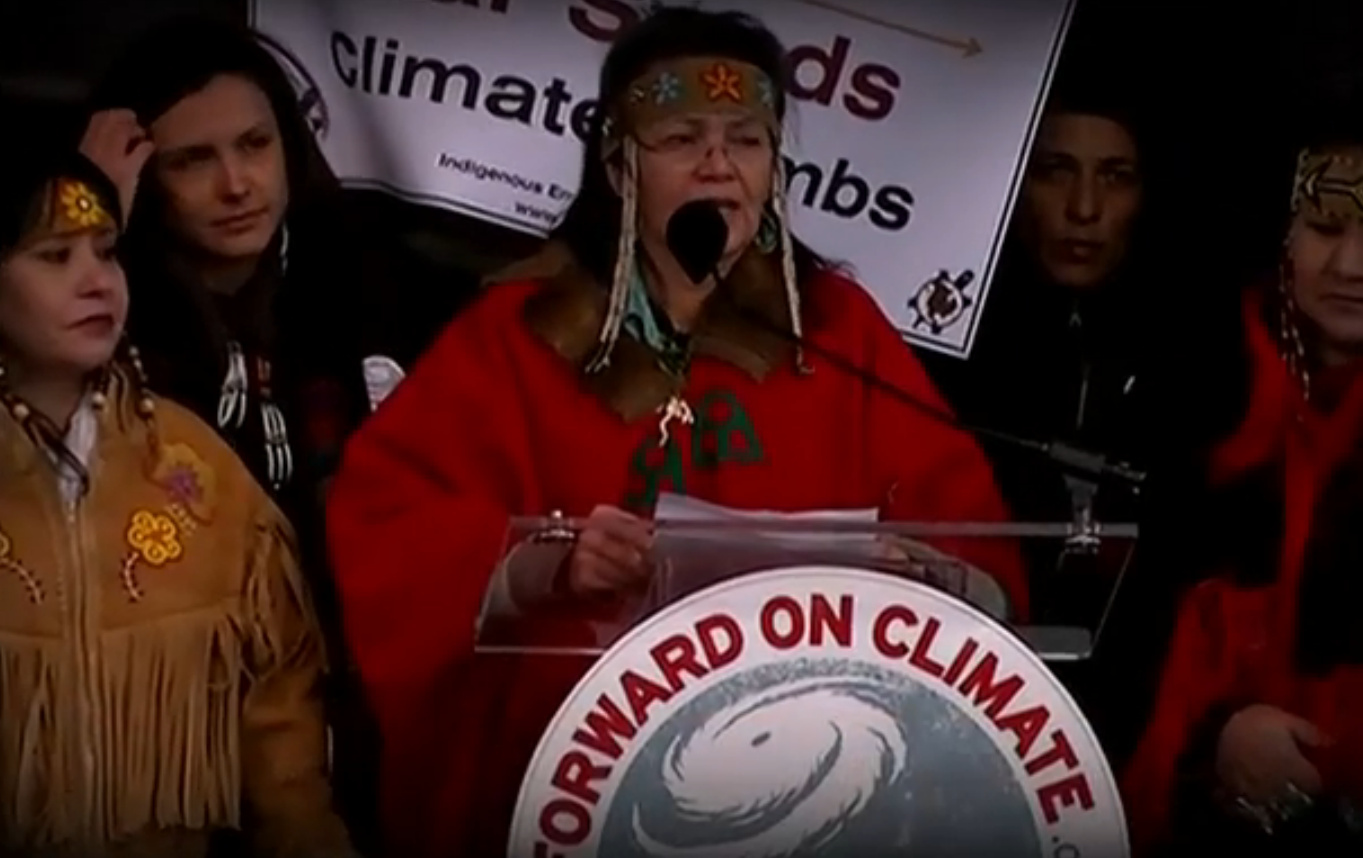
Because he believes in the development, Mr. Harper is not giving up on convincing the British Columbia First Nations of the benefits… of the pipeline projects. Art Sterritt is spokesperson for the First Nations of the Pacific coast. They also questioned the proposed Northern Gateway pipeline … he believes that the federal Minister of Natural Resources Joe Oliver. Did a favour to First Nations… describing environmentalists as radicals… trying to destroy the Canadian economy. According to David Bercuson, a historian at the University of Calgary, the Harper government prefers to focus on the development of the economy and jobs, rather than the fight against climate change… Following months of negotiation, it’s the Ontario government that finally comes to the rescue of these researchers …Ontario promised to keep the Experimental Lakes Area going,
but funding for research projects, such as Margaret Xenopoulos’s…is far from assured.
FOREIGN AID
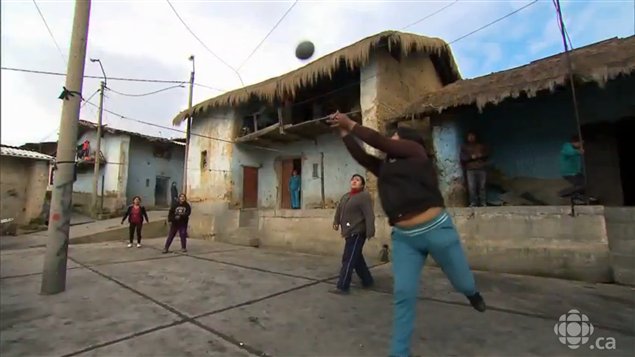
This is the Quiruvilca Region of the Andes in northern Peru. We’re more than 4000 meters up in the mountains. Tomassa Basilio Mercedes has been raising alpacas and harvesting their wool for 3 years, but it’s not just about breeding and harvesting. She has also taken courses in management and dreams one day of having a larger herd. Tomassa can afford to dream, with a Canadian foreign aid program that matches the NGO, World Vision, and the mining company, Barrick Gold. This is the new face of Canada’s international assistance, advocated by the Conservative government of Stephen Harper, projects where funds are given to aid organizations, working in collaboration with Canadian companies abroad.
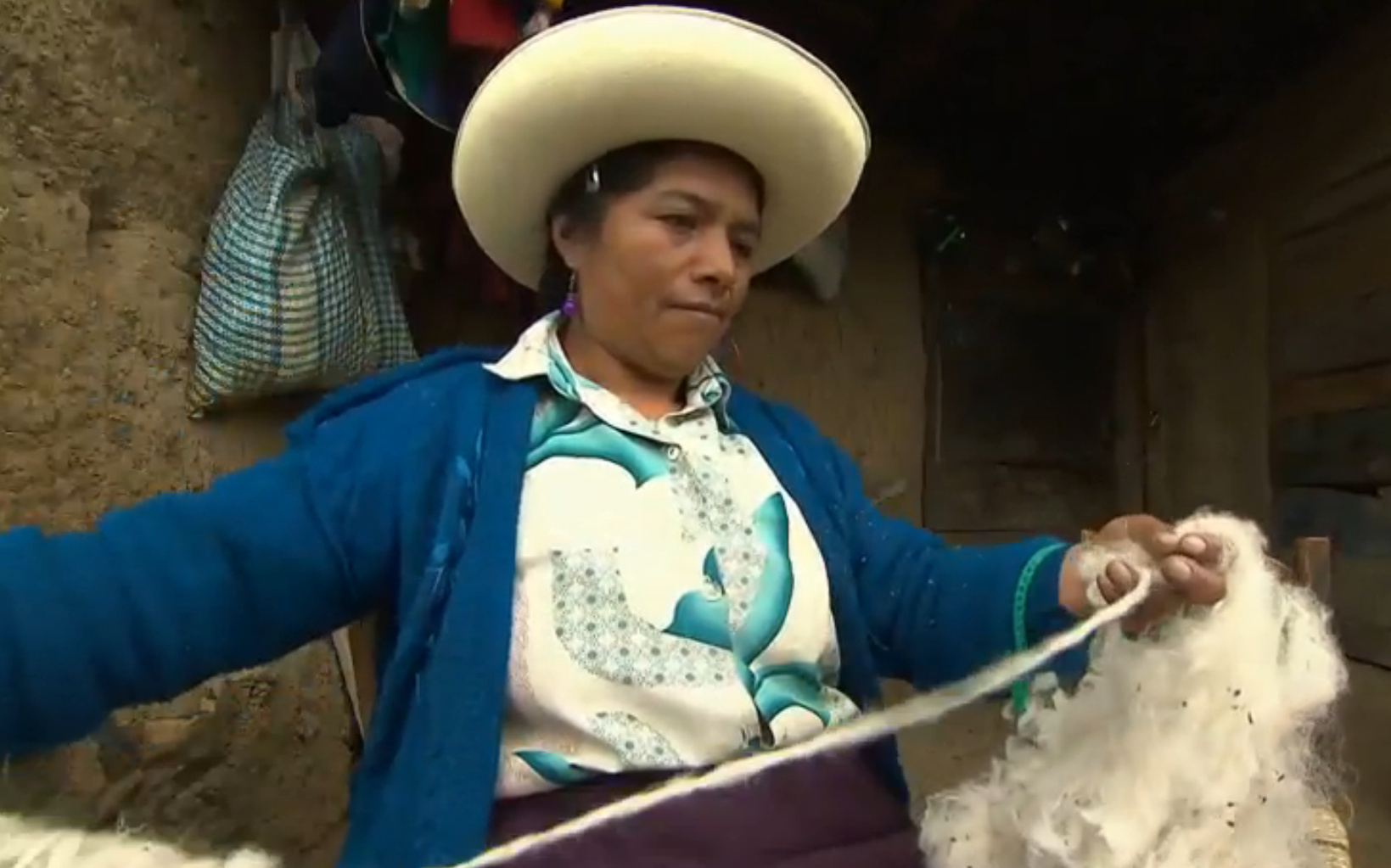
The Quiruvilca region is about 500 kilometres north-east of the capital, Lima. Half of the 14,000 inhabitants are farmers, the other half, who live in the city, work mainly in mining, extracting gold, silver and copper, as they have done since the colonial era. The region is still far from prosperous, and many people here live in abject poverty. Canadian mining company Barrick Gold has been operating the Laguna Norte gold mine here since 2005.
The company says it wants to fight poverty by partnering with World Vision, in an assistance program contributing $150,000. The Canadian portion of the project is $ 500,000. Wendy Therrien works for World Vision. With the money the organization receives from CIDA – the Canadian International Development Agency – and the money from Barrick Gold, she’s coordinating a project that helps to start micro-enterprises, like the trout farm, or the sewing workshop.
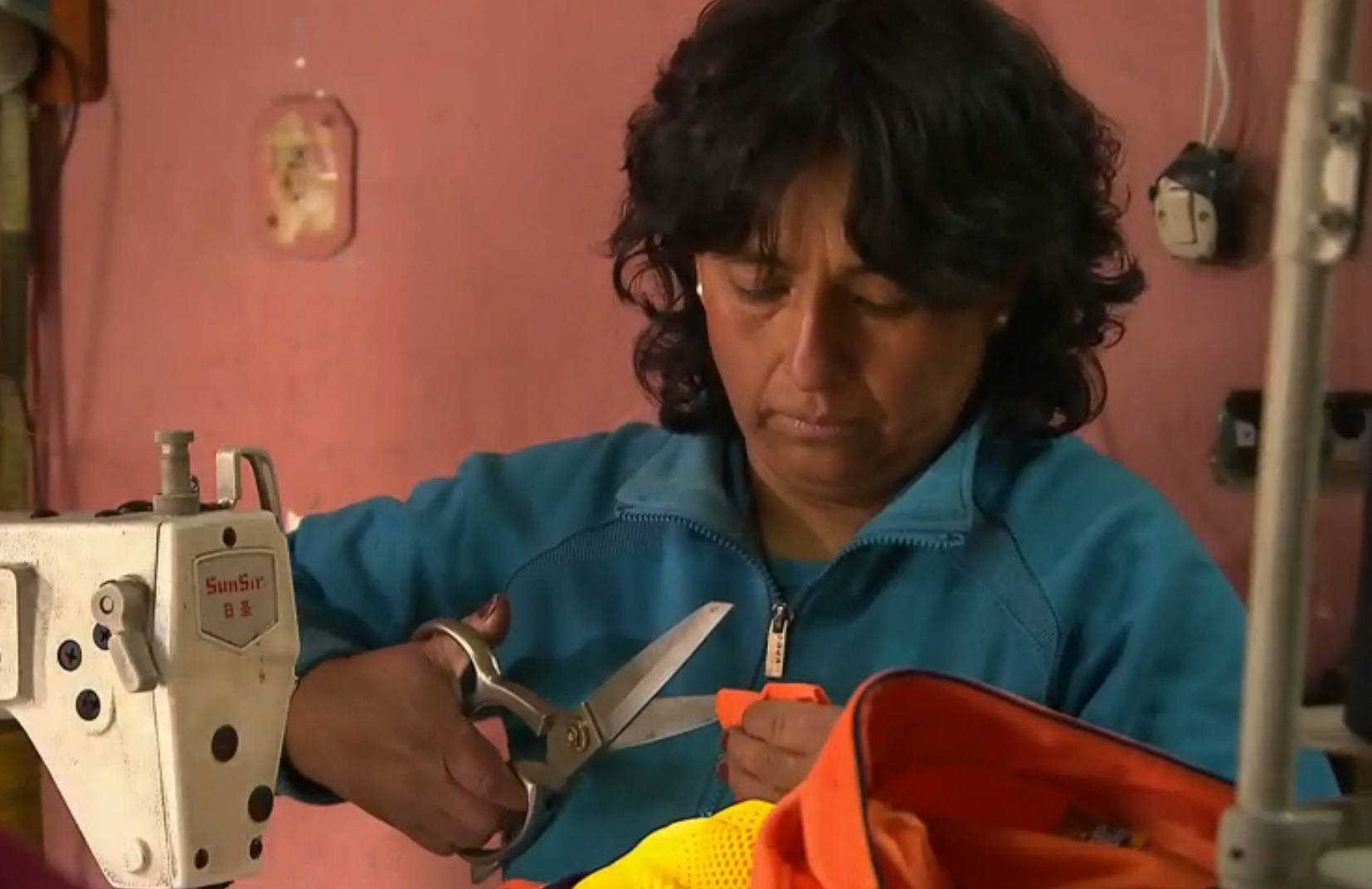
To facilitate this collaboration between NGO’s and Canadian companies Stephen Harper placed CIDA under the responsibility of the Ministry of Foreign Affairs and International Trade, at the end of June 2013.
The people of Quiruvilca rallied several times in recent years to protest the working conditions of miners, their wages, and also, the possible impact of the expansion of the Barrick Gold mine on the lagoons and lakes, which provide the water. The Canadian aid program is not intended to pacify the population, according to Wendy Therrien.
In addition to these projects collaborating with Canadian companies, we detected another changing trend in Canadian aid; the Harper government increased funding to agencies of an evangelical and religious character. François Audet, of the Canadian Observatory on Humanitarian Crises, is the author of a study in this field. This is Canmore, in Alberta’s Rocky Mountains. Paul Carrick, who along with his wife Beverly, runs the NGO Cause Canada. He noted another trend: hundreds of millions of dollars for international aid is not spent! Dozens of NGOs like theirs, that are known in Ottawa, have been waiting for two years, for the government to unfreeze, or make funds available for their projects.
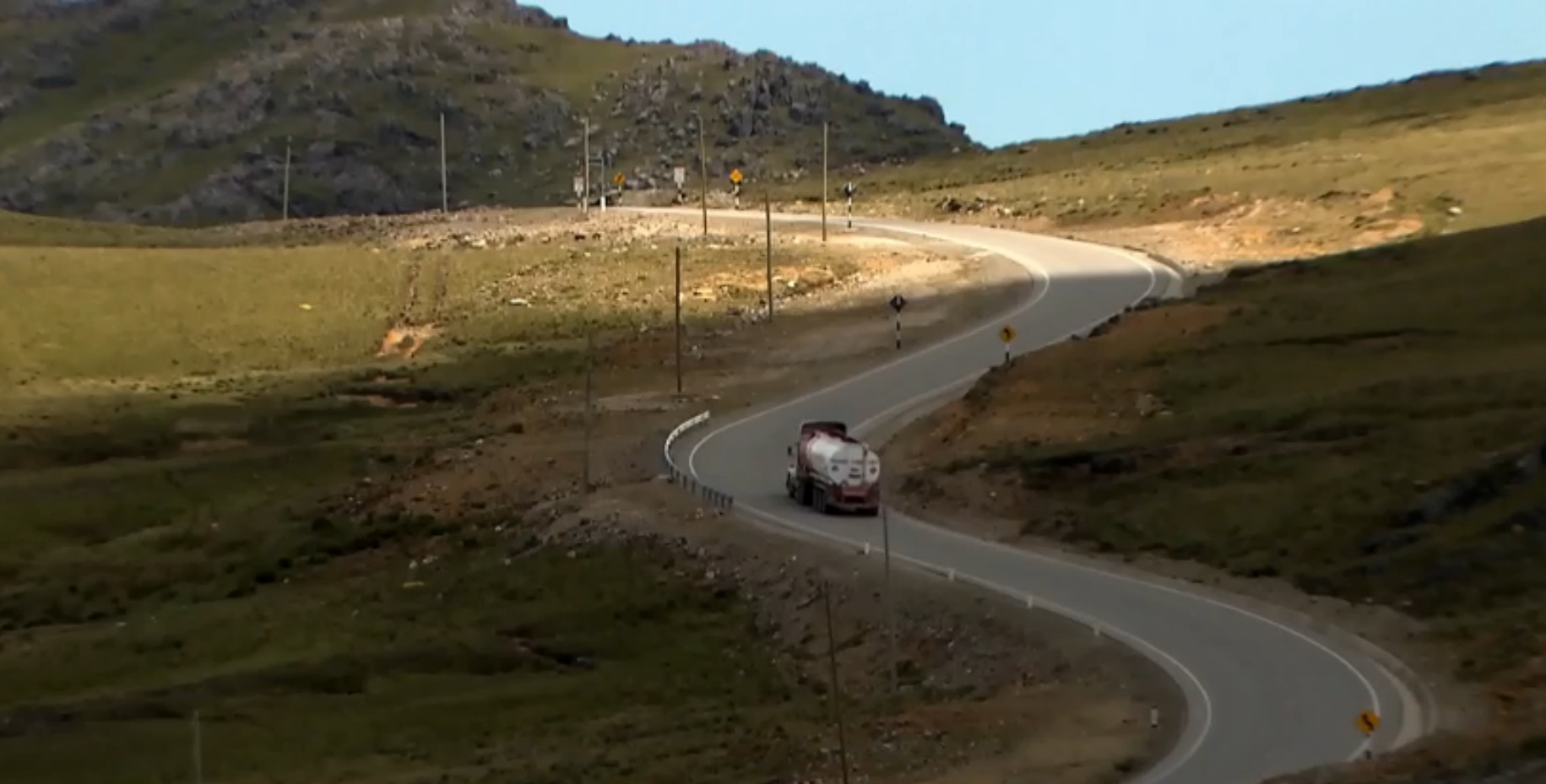
In May 2013, at the same time Stephen Harper was visiting Peru to improve trade relations, a small Canadian NGO in Lima was worried about its future. Daniel Vanoverschelde works for Crossroads International. It’s an NGO supporting programs that help women who live in the poor neighborhoods in Comas, a suburb of Lima. For 2 years he waited for the financing he used to receive from CIDA.
In Peru, just one country, it’s clear what is emerging for Canada’s aid abroad: on the one hand, an NGO that helps people in a poor neighbourhood of Lima waiting in vain for the renewal of its funding, on the other, an NGO that receives government funding for economic development programs, because the Harper government is betting that social development will follow.
INTERNATIONAL RELATIONS
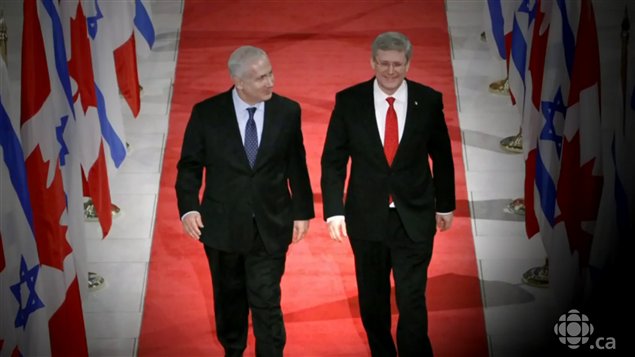
It is July 2006. Stephen Harper has been Prime Minister of Canada for 6 months. In the Middle East a war breaks out between Israel and the armed wing of the Hezbollah movement. Israel bombs southern Lebanon and the suburbs of Beirut, controlled by Hezbollah. Hezbollah responds by firing rockets at Israeli towns.

For those close to Stephen Harper there is no surprise here. He has always been pro-Israel, long before becoming Prime Minister. Gerry Nichols knew Stephen Harper, long before the 2006 election. According to him, despite Mr. Harper’s religious affiliation, there is nothing religious about his support for Israel. These tight links come in handy for Mr. Harper. On at least two occasions Israel agrees to stop firing to allow the evacuation of Canadians stranded near the line of fire.
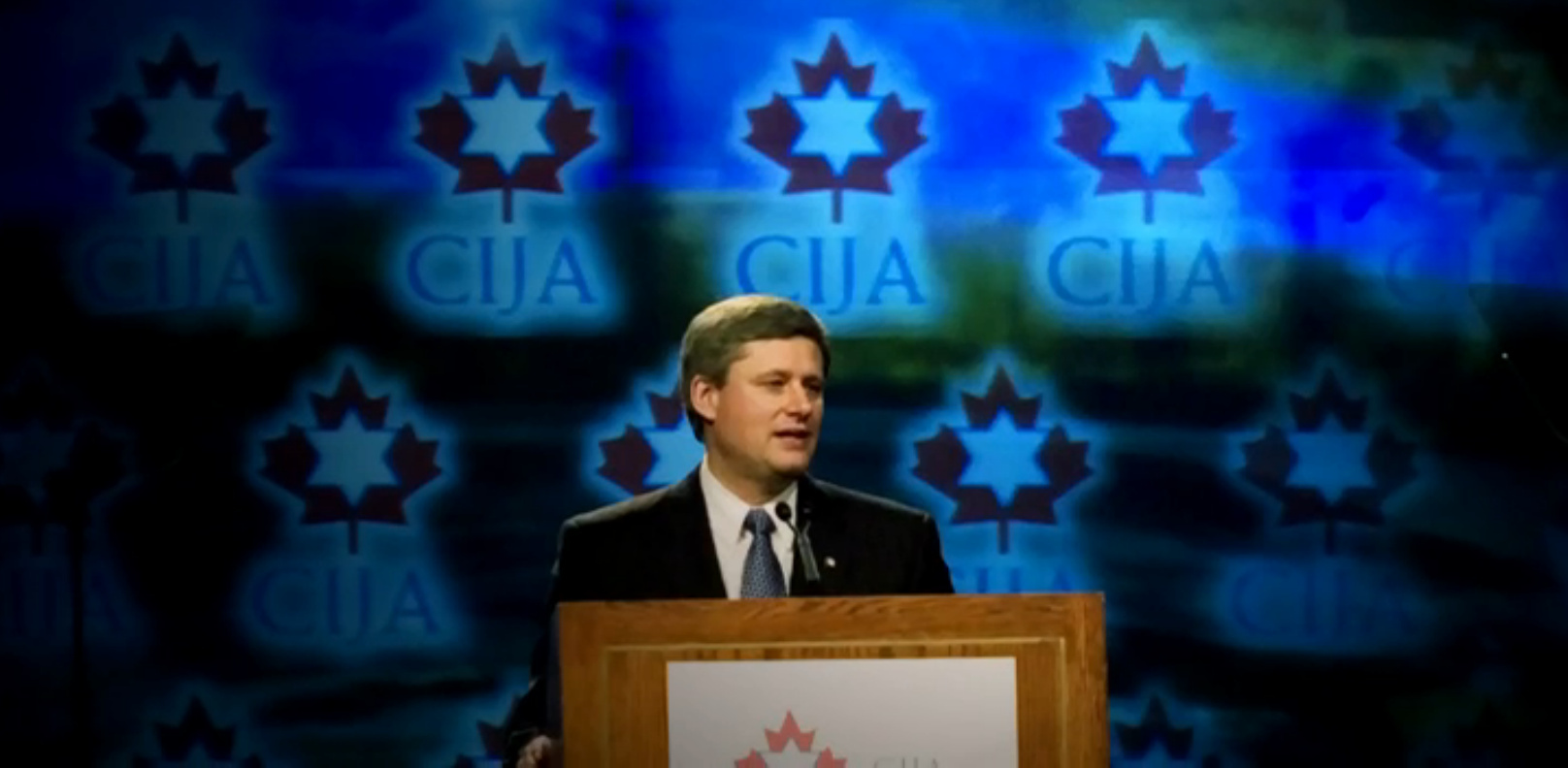
In New York City in September 2012, Stephen Harper receives the Statesman of the Year Award from an American organization. Here he clearly states his position on the state of Israel. As he accepts the tribute, Stephen Harper ignores the opening of the General Assembly of the United Nations, a few blocks away, the same UN that in the summer of 2006, described Israel’s response in Lebanon, as disproportionate.
In Israel, in the summer of 2013, Jews and Palestinians live in a state of constant tension in Jerusalem. It is a sacred place of pilgrimage for many religions, Jewish, Christian and Muslim people come from around the world to worship. Richard Marceau discovered Israel, going there several times while he was a member of the Bloc Quebecois from 1997 to 2006. He converted to Judaism in 2004. He is delighted with the unwavering support Harper has for Israel. It is an image of Israel that is not shared by all.
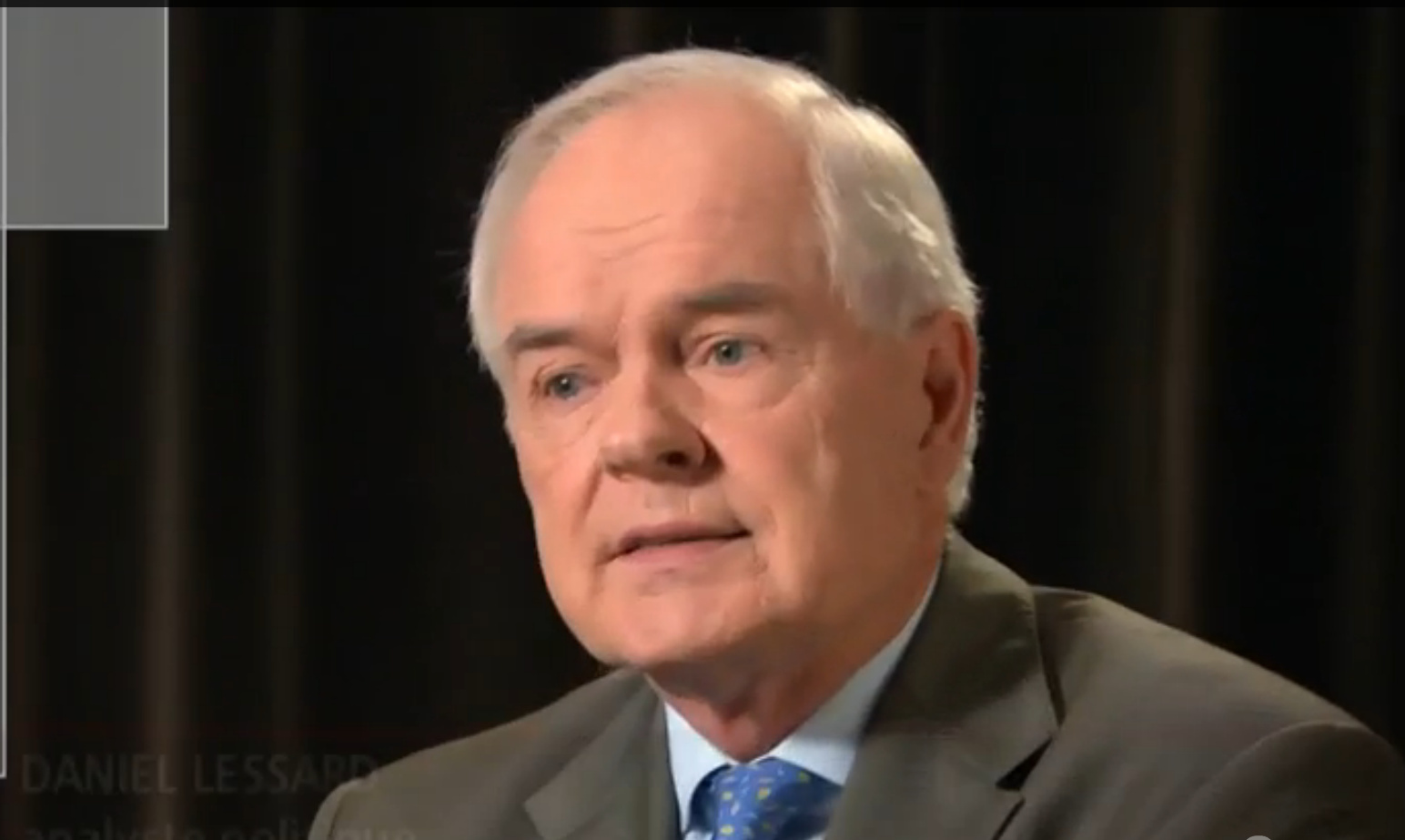
Fouad Sahyoun’s family was one of the Palestinian families who decided to leave the Middle East during the creation of Israel in 1948. Marie Bernard-Meunier is a career diplomat. She held several posts as Canadian ambassador. She would prefer to see Canada play a more varied role in the direction of the Middle East. In September 2009 Stephen Harper chose to open a Tim Horton’s coffee shop in Ontario, rather than attend the opening of the General Assembly of the United Nations. For many analysts, it’s clear that Mr. Harper’s foreign policy is first and foremost oriented to the function of domestic politics.
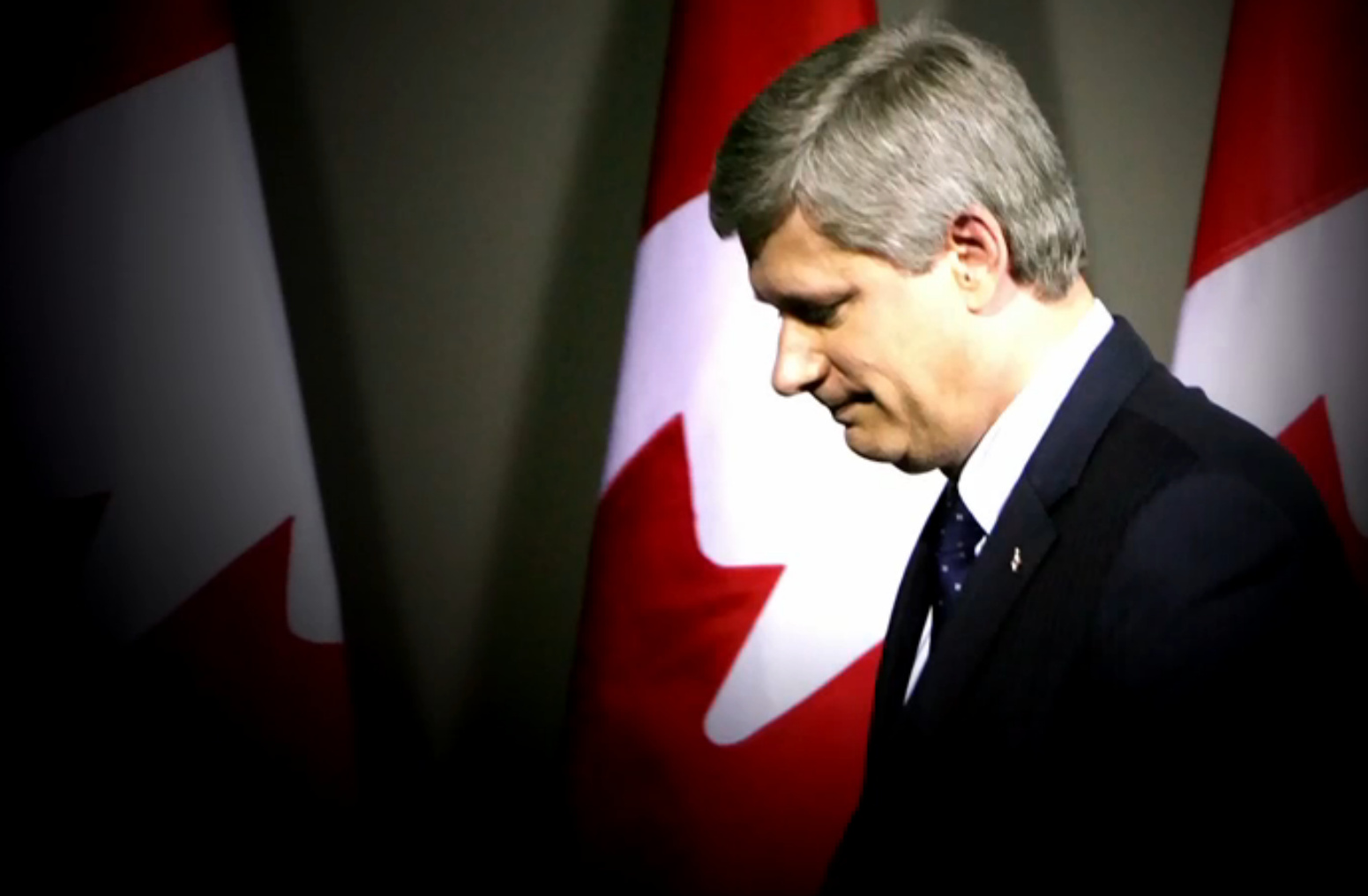
But beyond concerns of re-election, has Stephen Harper, who has managed to stay in power since 2006, changed Canada, left his mark? Opinions differ, but there is no obvious or unanimous answer. Among the dozens of people interviewed for this series, there are two views that are almost unanimous: Stephen Harper is doing everything he can to hold on to power, to last, and gradually bring all parts of Canada to accept his conservative policies. And,he hopes to achieve this, by wiping out the legacy of the Liberal governments that came before him.
